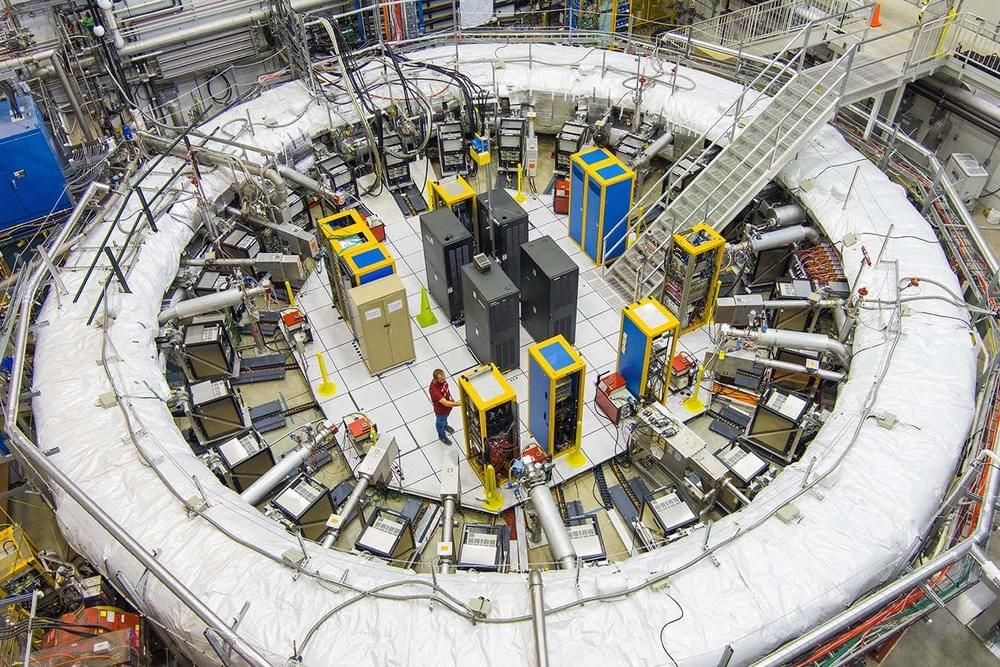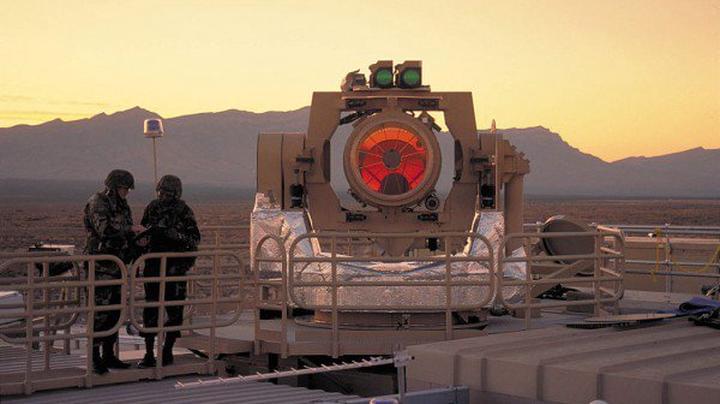August 6, 2021
Daniel Dennett on Consciousness, Virtual Immortality, and Panpsychism | Closer To Truth Chats.
August 6, 2021
Daniel Dennett on Consciousness, Virtual Immortality, and Panpsychism | Closer To Truth Chats.
http://www.ThoughtPollution.org — “If what I say now seems to be very reasonable, then I will have failed completely. Only if what I tell appears absolutely unreasonable have we any chance of visualizing the future as it really will happen.”
FREE BOOK! How to Order From the Universe.
http://www.mindpowernews.com/Universe/

An experiment at Fermilab in the US suggests that muons rotate faster than expected, which would be a problem for the standard model of particle physics.
By Leah Crane
What is panpsychism? Does it finally offer an explanation of consciousness? From the problems with materialism to the tradition of dualism, we asked the world’s leading thinkers to explain all.
#panpsychism #consciousness #reality #philosophy #mind.
Although one of the oldest philosophical theories, panpsychism is often seen as an outsider in the philosophy of mind. Recent interest in the hard problem of consciousness however has revived interest in panpsychism and mean it could provide new understandings of the mind and view of reality. Parapsychology expert Rupert Sheldrake, professor of philosophy Phillip Goff, cognitive psychologist Donald Hoffman, philosopher James Ladyman and professor of religion Mary-Jane Rubenstein give us their views.
For more on panpsychism and conciousness watch:
Understanding Conciousness | Full Debate | Rupert Sheldrake, George Ellis, Amie Thomasson.
https://www.youtube.com/watch?v=c-QOlTD0YHo.
Neuroscience of Conciousness | Raymond Tallis, Markus Gabriel, Susana Martinez Conde.

Quantum computing, just like traditional computing, requires a method to store the information it uses and processes. In the computer you’re using right now, information—whether it be photos of your dog, a reminder about a friend’s birthday, or the words you’re typing into your browser’s address bar—must be stored somewhere. Quantum computing, a relatively new field, is still exploring where and how to store quantum information.
In a paper published recently in the journal Nature Physics
As the name implies, Nature Physics is a peer-reviewed, scientific journal covering physics and is published by Nature Research. It was first published in October 2005 and its monthly coverage includes articles, letters, reviews, research highlights, news and views, commentaries, book reviews, and correspondence.

The Defense Advanced Research Projects Agency (DARPA) has announced a new program it says will develop synthetic metamaterials that could lead to breakthroughs in quantum computing and information science.
Called the Synthetic Quantum Nanostructures program, or SynQuaNon, the new DARPA initiative “aims to address this challenge with a fundamental science effort that seeks to develop synthetic metamaterials to enable enhanced functionalities and novel capabilities,” read a statement issued by the agency this week.
The program aims to produce a range of new quantum materials that will have a variety of uses in quantum computing and other information science applications.

Researchers led by a team at UT Southwestern Medical Center have identified cellular and molecular features of the brain that set modern humans apart from their closest primate relatives and ancient human ancestors. The findings, published in Nature, offer new insights into human brain evolution.
“Most evolutionary studies on the human brain have focused on neurons because this cell type was thought to be responsible for our intelligence and enhanced cognitive abilities. This study gives us a renewed appreciation for other cells involved in brain function and the role they have played both in advancing cognition and our susceptibility to a number of cognitive diseases,” said study leader Genevieve Konopka, Ph.D., Professor of Neuroscience and a member of the Peter O’Donnell Jr. Brain Institute at UT Southwestern.
Since ancient times, people have been curious about what gives humans abilities that other animals don’t have, such as speech and language, Dr. Konopka explained. A range of previous studies have sought to answer this question by examining brain anatomy or performing genetic or molecular studies on whole brains or sections, experiments that provide a view of thousands of cells at a time.
Talk kindly contributed by Michael Levin in SEMF’s 2022 Spacious Spatiality.
https://semf.org.es/spatiality.
TALK ABSTRACT
Life was solving problems in metabolic, genetic, physiological, and anatomical spaces long before brains and nervous systems appeared. In this talk, I will describe remarkable capabilities of cell groups as they create, repair, and remodel complex anatomies. Anatomical homeostasis reveals that groups of cells are collective intelligences; their cognitive medium is the same as that of the human mind: electrical signals propagating in cell networks. I will explain non-neural bioelectricity and the tools we use to track the basal cognition of cells and tissues and control their function for applications in regenerative medicine. I will conclude with a discussion of our framework based on evolutionary scaling of intelligence by pivoting conserved mechanisms that allow agents, whether designed or evolved, to navigate complex problem spaces.
TALK MATERIALS
· The Electrical Blueprints that Orchestrate Life (TED Talk): https://www.ted.com/talks/michael_levin_the_electrical_bluep…trate_life.
· Michael Levin’s interviews and presentations: https://ase.tufts.edu/biology/labs/levin/presentations/
· Michael Levin’s publications: https://ase.tufts.edu/biology/labs/levin/publications/
· The Institute for Computationally Designed Organisms (ICDO): https://icdorgs.org/
MICHAEL LEVIN
Department of Biology, Tufts University: https://as.tufts.edu/biology.
Tufts University profile: https://ase.tufts.edu/biology/labs/levin/
Wyss Institute profile: https://wyss.harvard.edu/team/associate-faculty/michael-levin-ph-d/
Wikipedia: https://en.wikipedia.org/wiki/Michael_Levin_(biologist)
Google Scholar: https://scholar.google.com/citations?user=luouyakAAAAJ
Twitter: https://twitter.com/drmichaellevin.
LinkedIn: https://www.linkedin.com/in/michael-levin-b0983a6/
SEMF NETWORKS

According to Chinese military experts, they have created a novel cooling mechanism that enables high-energy lasers to run “infinitely” without producing any waste heat. South China Morning Post claims that researchers at the National University of Defence Technology in Changsha, Hunan province, claim that the novel cooling system fully avoids the dangerous heat produced by high-energy laser operation.